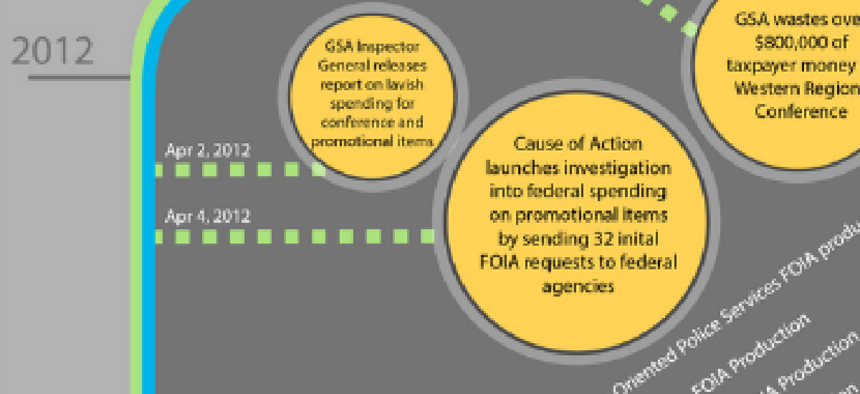DHS: Watchdog group misrepresented awards program

Cause for Action investigation targeted "excessive" spending on promotional and commemorative items, but DHS IG program "entails employee bonuses and performance incentives."

Cause of Action got press this week for its allegations of wasteful spending on tchotchkes, but the Homeland Security Department's acting inspector general yesterday chided the watchdog group for what he considers inaccuracies in the report with regard to federal employee awards programs.
The Office of Inspector General's (OIG) award program "entails employee bonuses and performance incentives, not promotional items," acting IG Charles Edwards said in an Oct. 11 statement.
"My office has more than 700 employees. They are eligible for various monetary awards if they excel at their jobs or exceed expectations. Even as we strive to recognize outstanding employee achievement with this program, we are pretty careful on how much money we spend," Edwards said.
Cause of Action released its "Coin for Coins: Federal Agency Spending on Promotional and Commemorative Items" Oct. 9. The group submitted FOIA requests to 32 agencies, including the DHS OIG. The research was spurred on in April when the General Services Administration was caught in a scandal over conference spending and awarding its employees costly commemorative items. Cause of Action found agencies, including DHS, bought commemorative coins, desktop clocks, lapel pins, luggage tags, and laptop bags. There were even hockey pucks, yo-yos and paperweights.
Edwards' office replied to Cause of Action's Freedom of Information Act request with three documents, totaling 41 pages. In reviewing the FOIA response from the OIG, the group found the office had spent nearly $700,000 on "awards" by eight offices in fiscal 2010 alone.
"Purchases of promotional items made by the government agencies which are a part of this investigation were often prudent business decisions," the group concluded. "However, a significant number of purchases were excessive."
After reading Cause of Action's report, Edwards said the group had based its report solely on his office's FOIA response. But "at no time prior to the release of this report did anyone from Cause of Action contact the OIG or its Office of Public Affairs for comment on its report, or to verify the accuracy of Cause of Action's interpretation of the FOIA documents," according to the IG's statement.
Dan Epstein, executive director at Cause of Action, said it is not his group's fault that the IG's FOIA office did not have the IG's counsel review the FOIA response.
"DHS OIG acknowledged, as it must, that the error, if any, was with the OIG's FOIA office, not CoA," Epstein said in a statement. "Yet the fact that DHS OIG's own FOIA office did not, in the opinion of the OIG, accurately classify the records produced to Cause of Action as promotional items signals that CoA's concerns are not only real, but justified."
The group never identified the OIG's spending as based on trinkets, plaques or commemorative items. Some media outlets may have characterized them as such, but Cause of Action did not, Epstein said.
The IG's office asked Cause of Action to revise its report and remove all references to the IG. The group updated its press release to avoid confusion.


